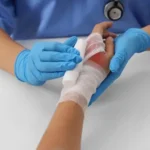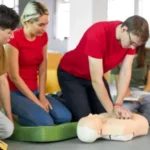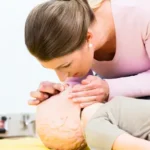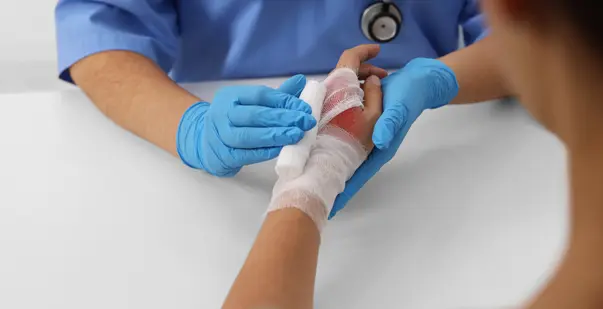Have you ever heard of angina? Do you know what it means and how it can affect your heart? Angina is a type of chest pain that happens when your heart does not get enough blood and oxygen. It can be caused by many things, such as stress, smoking, high blood pressure, or blocked arteries. Angina is not a heart attack, but it can be a warning sign that your heart is in trouble. During an emergency, a life-saving intervention can be performed, like CPR and angina victim can be saved.
If you are looking for a convenient and affordable way to learn CPR, you might want to consider taking an online course from American HealthCare Academy. CPR is a vital skill that can help you save a life in case of a cardiac emergency, such as angina. American HealthCare Academy offers online CPR courses that are nationally and internationally accepted and follows the latest ECC guidelines. You can complete the course at your own pace and receive your certification instantly after passing the test. The course covers adult, child, and infant CPR, as well as AED training and bag-mask techniques for healthcare providers. The course is valid for two years and includes 4.0 CE credit hours for medical fields. Register today and start learning CPR with American HealthCare Academy!
Explain an Angina
Angina can feel like a tightness, pressure or squeezing of muscles in your chest. It can also spread to your neck, jaw, shoulders, arms, or back. Some people may feel short of breath, dizzy, sweaty, or nauseous. Angina usually lasts for a few minutes and goes away when you rest or take medicine. However, if the pain does not go away or gets worse, you may be having a heart attack and need to call 911 right away.
Symptoms of a Cardiac Arrest in a Middle-aged Person
A cardiac arrest is when your heart stops beating suddenly and you lose consciousness. It can happen to anyone at any age, but it is more common in people who have heart problems or risk factors. Some of the symptoms of cardiac arrest in a middle-aged person are:
- No pulse or breathing
- No response to shaking or shouting
- Pale or blue skin
- Loss of bladder or bowel control
A cardiac arrest is a medical emergency and requires immediate action. If you see someone having a cardiac arrest, you should:
- Call 911 and ask for an ambulance and an AED (automated external defibrillator)
- Start CPR (cardiopulmonary resuscitation) by pushing hard and fast on the center of the chest
- Use an AED if available and follow the voice instructions
- Continue CPR and AED until help arrives or the person shows signs of life
How does CPR and AED Certification Help?
CPR and AED are lifesaving skills that can make a difference between life and death for someone who has a cardiac arrest. CPR for angina patients helps to keep their blood flowing to the brain and other vital organs until the heart can be restarted. AED is a device that can shock the heart back to its normal rhythm if it is beating irregularly. By learning CPR and AED, you should be able to:
- Recognize the signs of a cardiac arrest and act quickly
- Perform CPR correctly and effectively
- Use an AED safely and confidently
- Increase the chances of survival and recovery for the victim
Lifesaving Courses from American HealthCare Academy
If you want to learn CPR and AED or refresh your skills, you can enroll in one of the courses offered by American HealthCare Academy. They are:
- CPR/AED Course: This course covers adult, child, and infant CPR and AED for laypersons and healthcare providers.
- First Aid Course: This course covers basic first aid skills for common injuries and illnesses.
- CPR BLS Course: This course combines both CPR and BLS courses.
- Bloodborne Pathogens Course: This course covers how to prevent and respond to exposure to bloodborne pathogens.
All these courses are online and self-paced. You can access them anytime and anywhere with an internet connection. You can also get certified or recertified after passing an online exam. The certificates are valid for two years and are accepted nationwide.
Conclusion
Angina is a serious condition that can lead to a heart attack or cardiac arrest. It is important to know what it is, how to prevent it, and how to respond if it happens. By learning CPR and AED from American HealthCare Academy, you can be prepared to save a life in case of an emergency.













